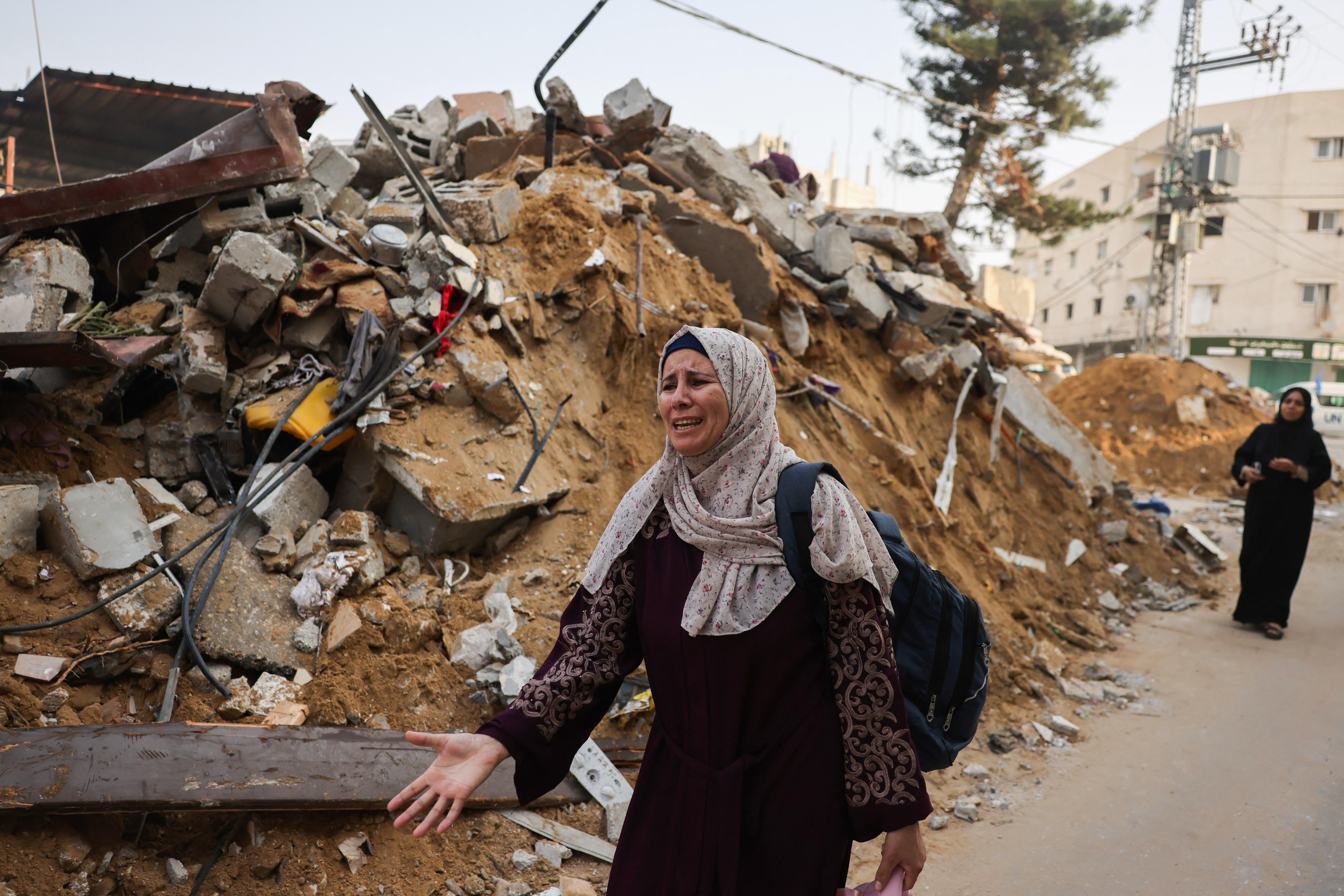 A woman reacts next to the rubble of a building following Israeli strikes on Rafah in the southern Gaza Strip on Oct 24, 2023, amid ongoing battles between Israel and the Palestinian group Hamas. (PHOTO / AFP)
A woman reacts next to the rubble of a building following Israeli strikes on Rafah in the southern Gaza Strip on Oct 24, 2023, amid ongoing battles between Israel and the Palestinian group Hamas. (PHOTO / AFP)
LONDON - Geopolitical tensions heightened by the Middle East conflict pose the biggest threat to the world economy right now but other risks are also at play, World Bank President Ajay Banga said on Tuesday.
"The US 10-year Treasury (yield) just crossed 5 percent briefly yesterday, these are areas we haven't seen. So yes, that is right there lurking in the shadows," Banga said, referring to a rise in the benchmark for borrowing costs around the world which further threatens an economic slowdown.
"And then, how long before the next pandemic?" Banga said during an event at the annual Future Investment Initiative (FII) in Riyadh.
Ajay Banga said private sector investment is needed in developing economies but political risks in some of these countries remain a barrier
"There is so much going on in the world and geopolitics in the wars that you're seeing and what just happened recently in Israel and Gaza. At the end of the day, when you put all this together, I think the impact on economic development is even more serious," he said.
READ MORE: IMF, World Bank 'impotent' on Israel-Gaza war amid reforms
Risks tend to move around, he said. "So I would be very careful of fixating on one and ignoring the others right now."
Banga said that while everything in the developed world looks better than had been expected some time ago, "I think that we're at a very dangerous juncture."
He said private sector investment is needed in developing economies but political risks in some of these countries remain a barrier.
ALSO READ: WB chief: World economy in difficult place but not destined to stay there
"One trillion of dollars is needed just for renewable energy in the emerging markets. There is not enough money in government coffers or even in the multilateral development banks, we need to involve the private sector with their capital," he said. "And that is the biggest task we have ahead of us."


